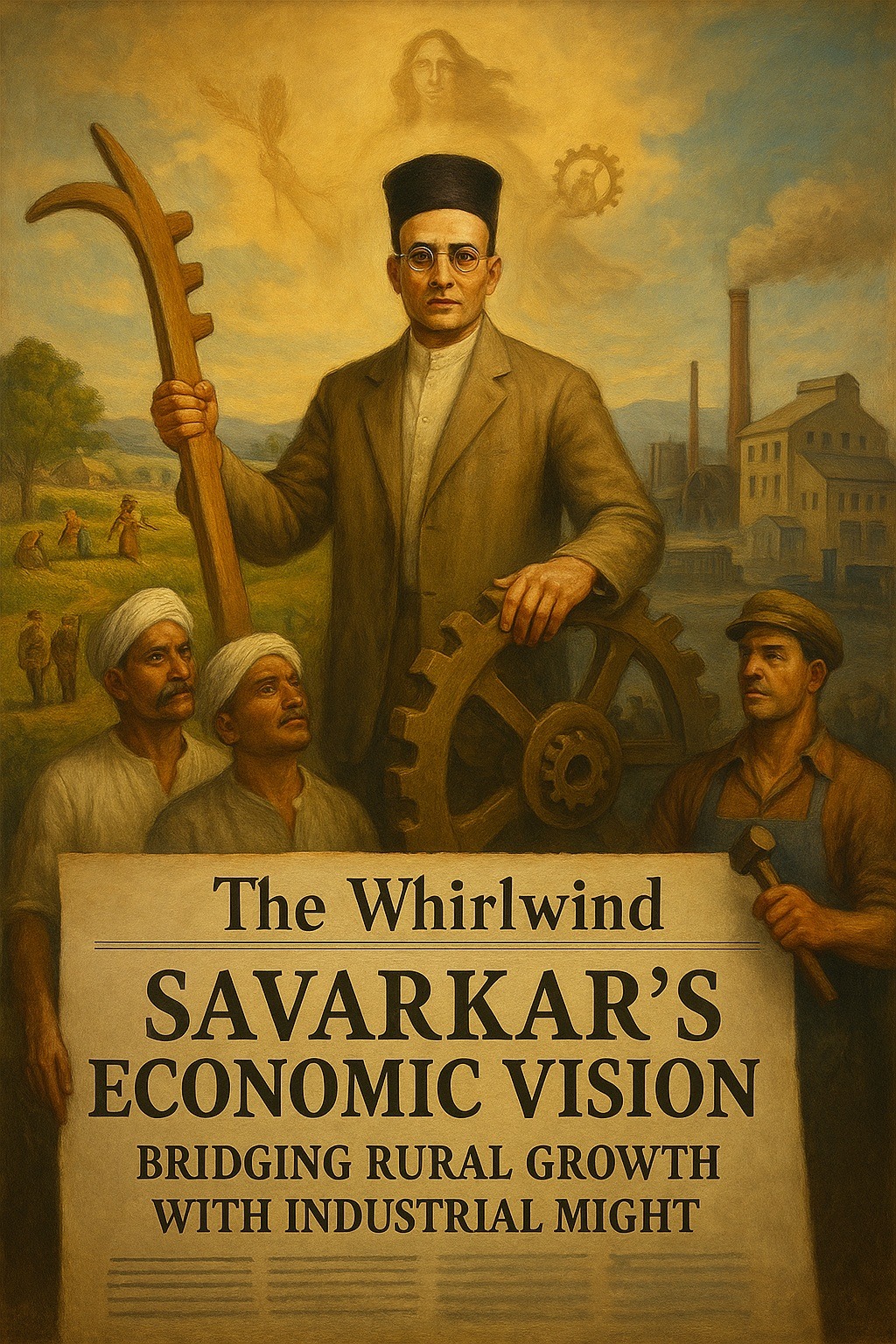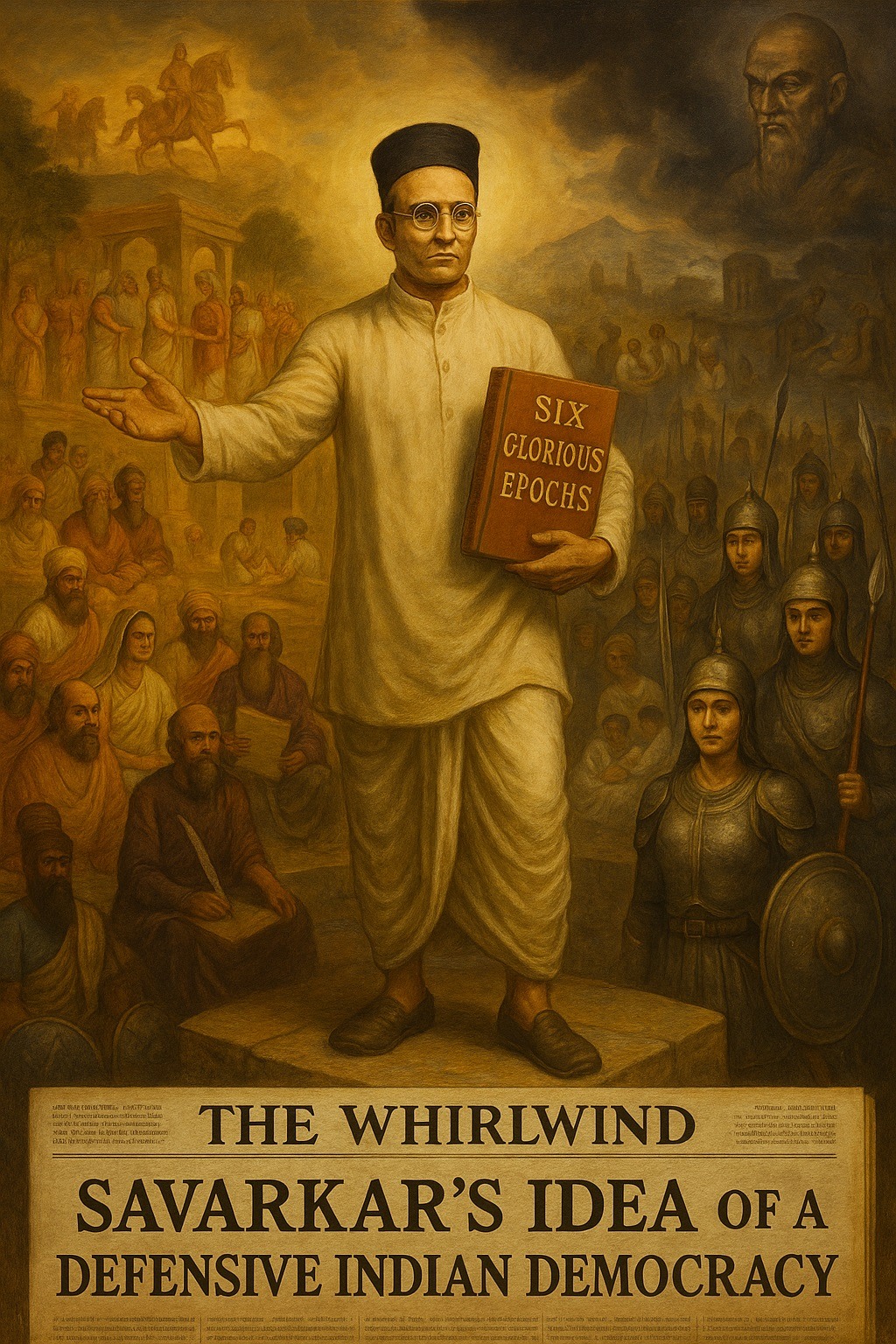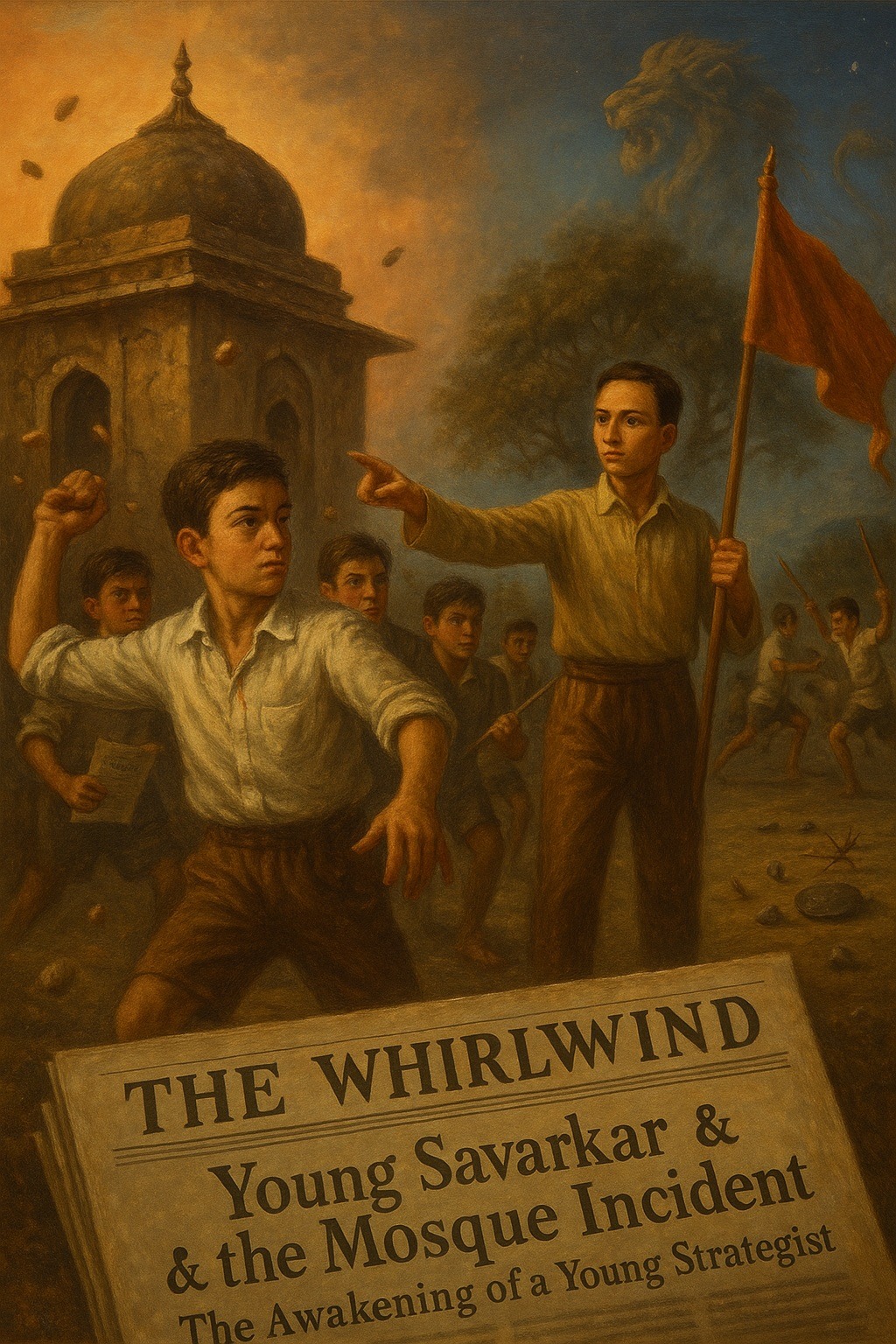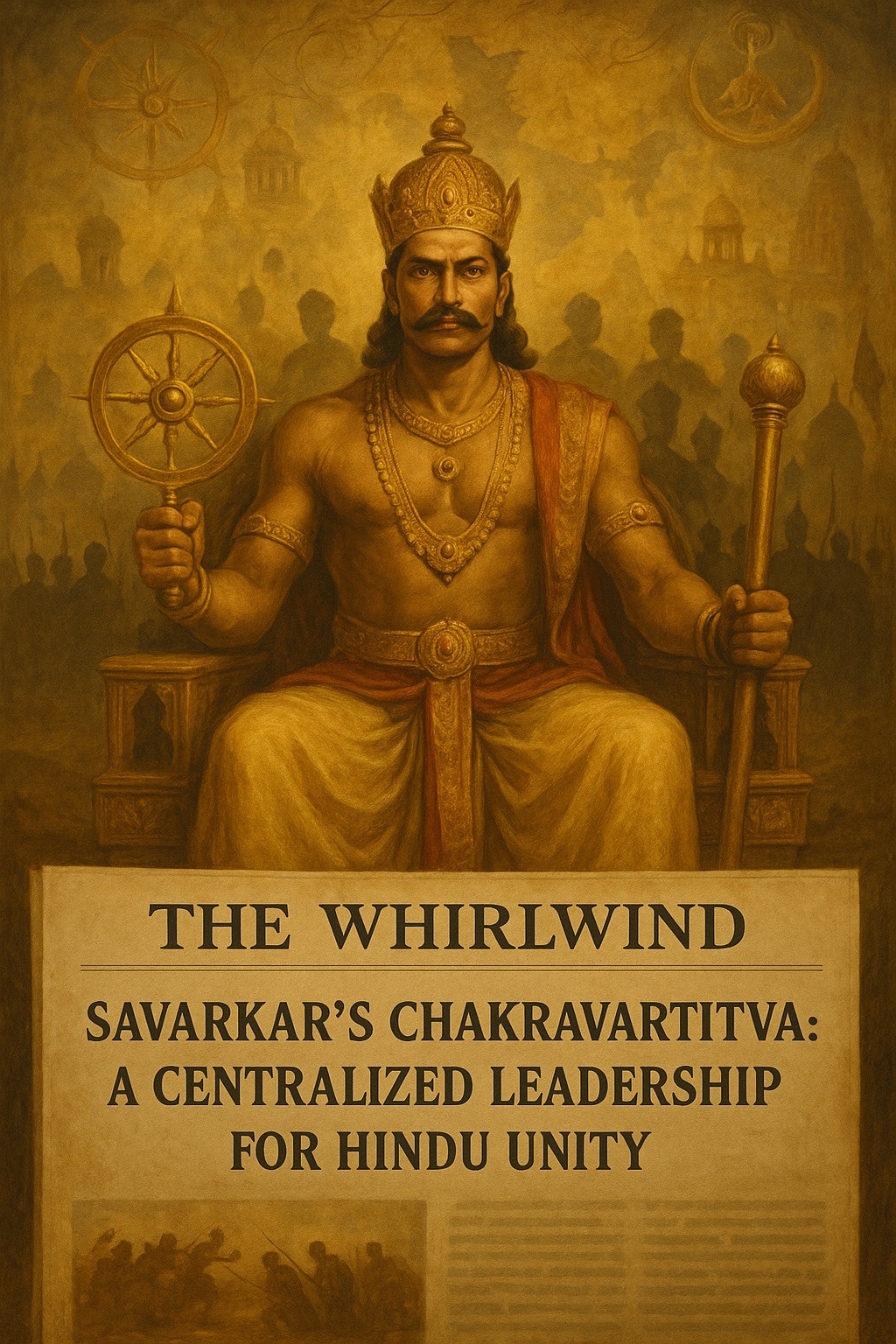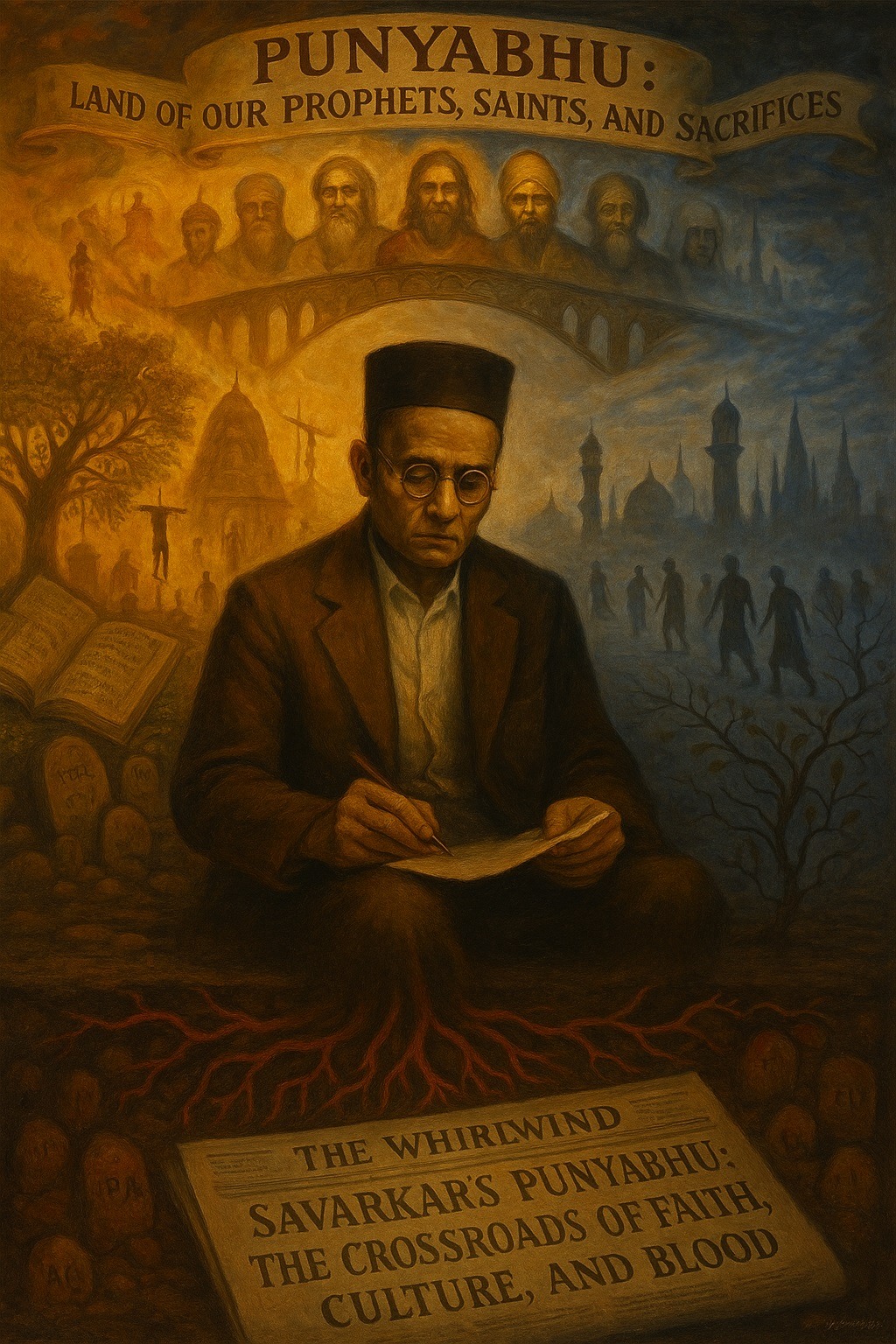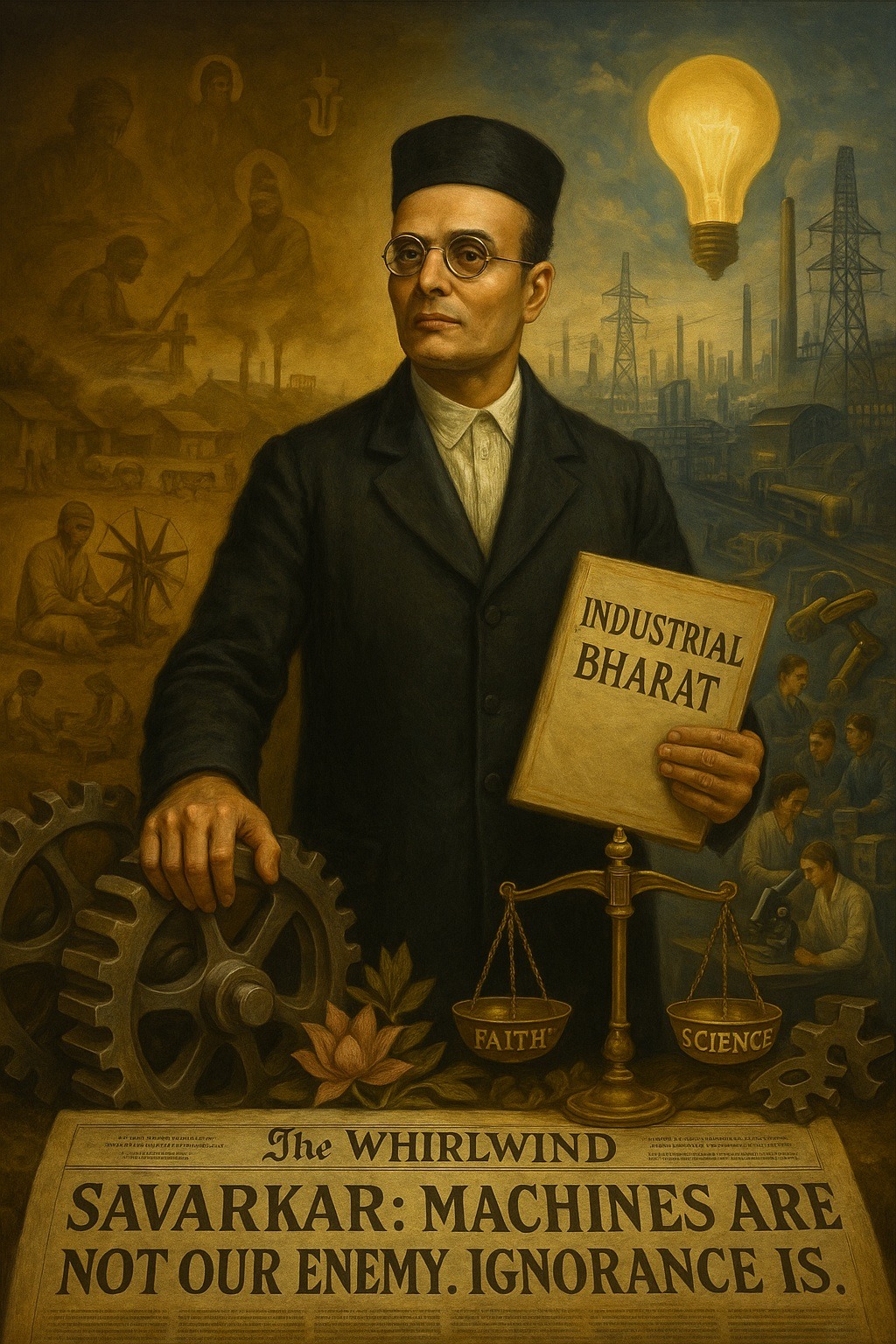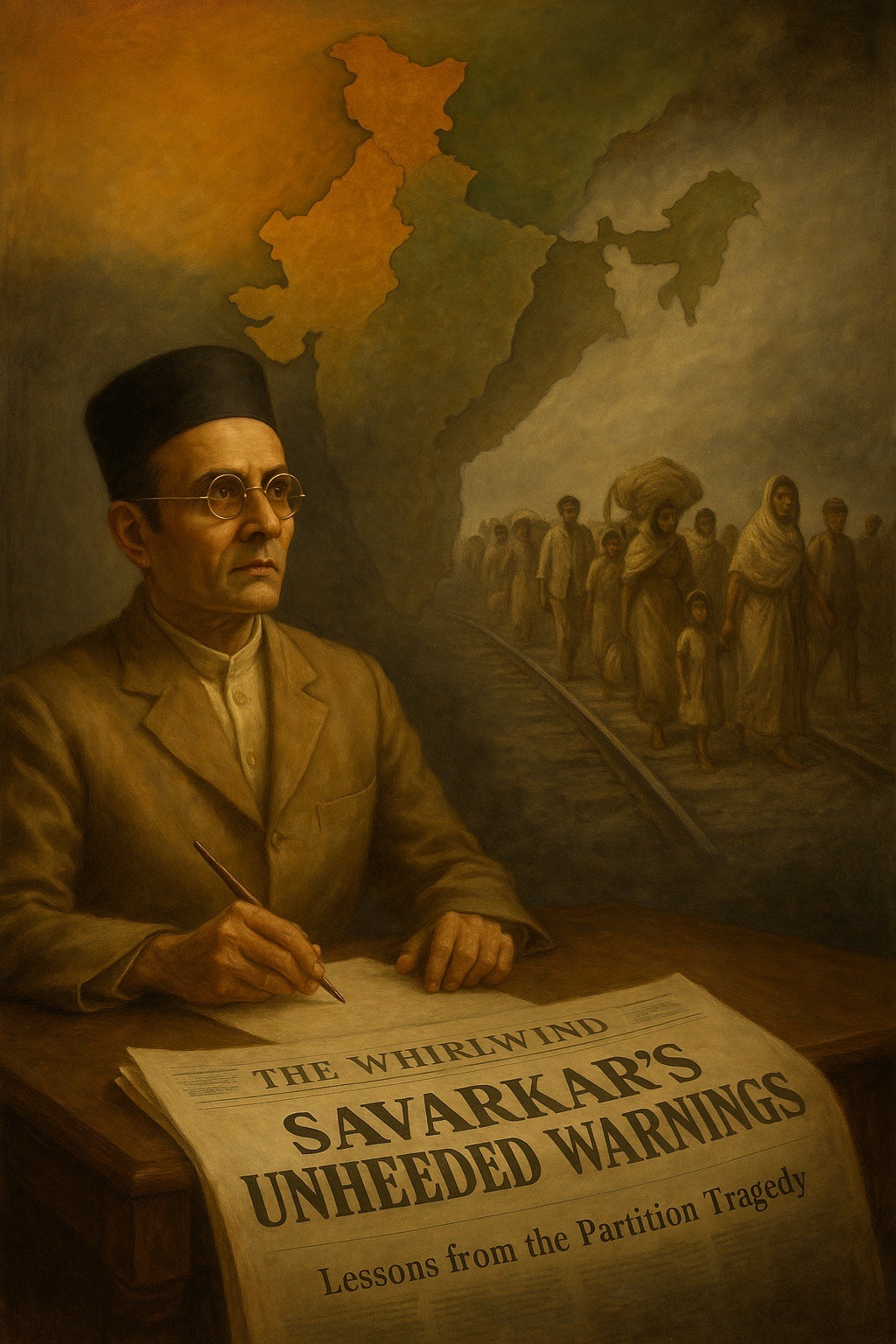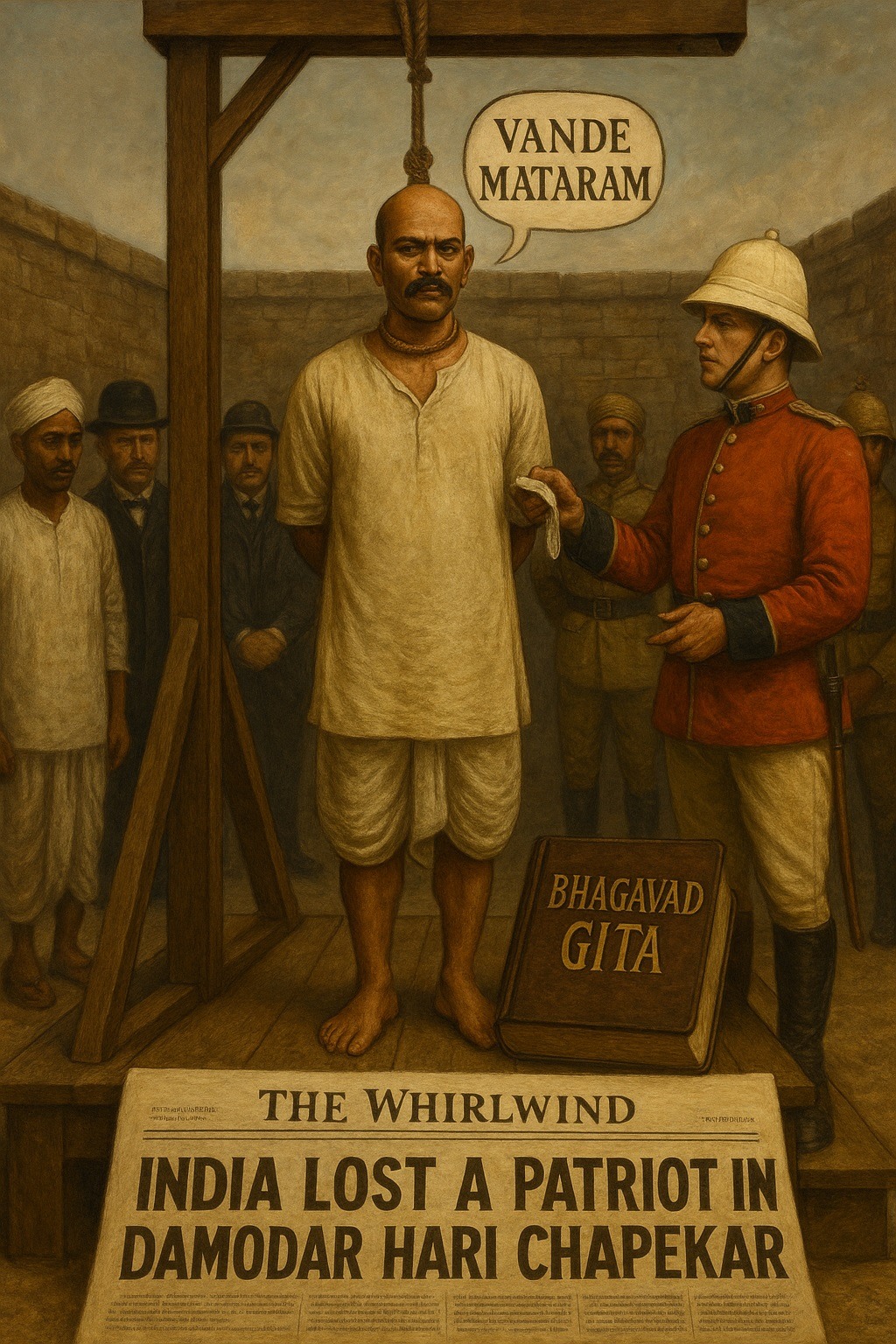All Blogs
Discover
The Whirlwind’s Archive
This section contains the complete archive of The Whirlwind is a blog dedicated to the life, thought, and influence of Vinayak Damodar Savarkar. Each entry explores aspects of his political action, philosophical thinking, social reform efforts, historical interpretations, and cultural legacy. The blog aims to offer critical insights into Savarkar’s role in shaping modern Indian political and ideological discourse.

-
Savarkar’s Indivisible Motherland
Read more: Savarkar’s Indivisible MotherlandSavarkar’s Coding of Hindutva; Metacode Rashtra, Part 5; Code Territorium (4/6); Codeelement Des, Indivisibility of the Territory (1/3) When Vinayak Damodar (Veer) Savarkar spoke of nationalism, he did not imagine it in narrow or regional terms. Instead, he envisioned a pan-Indian nationalism that stretched across the entire subcontinent—bounded naturally by the Himalayas in the north…
-
Savarkar: Empowering Farmers and Workers
Read more: Savarkar: Empowering Farmers and WorkersEconomic Dimension of Hindutva, Part 7; Savarkar’s Economic Principles (3/13) India’s economic foundation has long been rooted in agriculture, with rural communities playing a pivotal role in the nation’s progress. Vinayak Damodar (Veer) Savarkar, a visionary thinker and nationalist, recognized the indispensable contribution of the peasantry and the working class. He believed that empowering these…
-
Savarkar’s Defensive Indian Democracy
Read more: Savarkar’s Defensive Indian DemocracyPolitical Dimension of Hindutva, Part 8 The political ideas of Vinayak (Veer) Damodar Savarkar cannot be clearly assigned to a specific model of governance. However, with the transformation of British India into the independent Indian Union, democratic concepts increasingly became the focus of his thinking. In his final work, Six Glorious Epochs of Indian History,…
-
Young Savarkar & the Bhagur Mosque Incident
Read more: Young Savarkar & the Bhagur Mosque IncidentIn the late 19th century, India was a country simmering with tensions—political, religious, and cultural. The British colonial regime‘s policy of divide and rule had deepened communal divisions. Against this backdrop, a teenage Vinayak Damodar (Veer) Savarkar, growing up in the village of Bhagur near Nashik, encountered one of the first defining moments of his…
-
Savarkar’s Chakravartitva and Hindu Unity
Read more: Savarkar’s Chakravartitva and Hindu UnityPolitical Dimension of Hindutva, Part 7 Vinayak Damodar (Veer) Savarkar’s political-religious vision is deeply rooted in an archaic worldview. A key element in his concept of an ideal governance structure for Hindus is the idea of “Hindu leadership through a strong hand.” This theme is recurrent throughout his writings, particularly through his admiration of the…
-
Savarkar’s Agnosticism: Punyabhu Explained
Read more: Savarkar’s Agnosticism: Punyabhu ExplainedSavarkar’s Philosophy & Worldview , Part 7; Savarkar’s Agnosticism, (3/4) In the ongoing exploration of Vinayak Damodar (Veer) Savarkar’s agnosticism, one of the most intriguing and misunderstood concepts is his use of the term Punyabhu or Punyabhumi, often translated as “Holy Land.” This term has sparked significant debate, with both critics and supporters often misinterpreting…
-
Savarkar’s Call for an Industrialized India
Read more: Savarkar’s Call for an Industrialized IndiaEconomic Dimension of Hindutva, Part 6; Savarkar’s Economic Principles (2/13) Vinayak Damodar (Veer) Savarkar was not just a political thinker and revolutionary; he was also a strong advocate for technological progress. At a time when Indian society was grappling with the impact of modernization, Savarkar made a passionate appeal to his compatriots to welcome the…
-
Savarkar’s Warnings and the 1947 Partition
Read more: Savarkar’s Warnings and the 1947 PartitionIndependence Shadowed by Tragedy The Partition of India in 1947 was more than the birth of two nations — it was one of the largest human tragedies in recorded history. While millions celebrated independence, millions more faced death, displacement, and devastation. Few foresaw the coming storm as clearly as Vinayak Damodar (Veer) Savarkar. For years,…
-
Rashtrabhakta Samuha: Savarkar’s First Step to Revolution
Read more: Rashtrabhakta Samuha: Savarkar’s First Step to RevolutionIn 1899, deep within the narrow lanes of Tilbhandeshwar, a sixteen-year-old schoolboy named Vinayak Damodar (Veer) Savarkar was quietly rewriting the script of India’s freedom struggle. While the Indian National Congress (INC) still pursued petitions and reform, Savarkar envisioned something far more daring — a secret society devoted to armed revolution. That vision took shape…
-
Damodar Hari Chapekar: Pioneer of Resistance
Read more: Damodar Hari Chapekar: Pioneer of ResistanceIn the closing years of the 19th century, when the Indian National Congress (INC) still placed its hopes in petitions and polite appeals, a young man from Chinchwad near Pune took a radically different path. Damodar Hari Chapekar became one of the first Indians in modern history to take up arms against British colonial authority…


